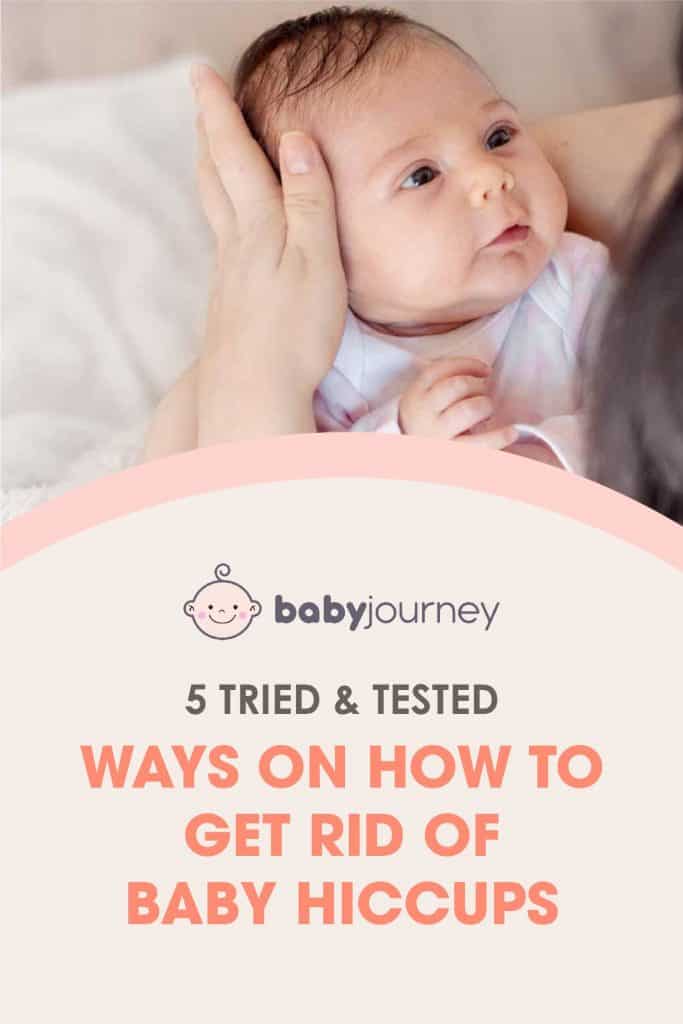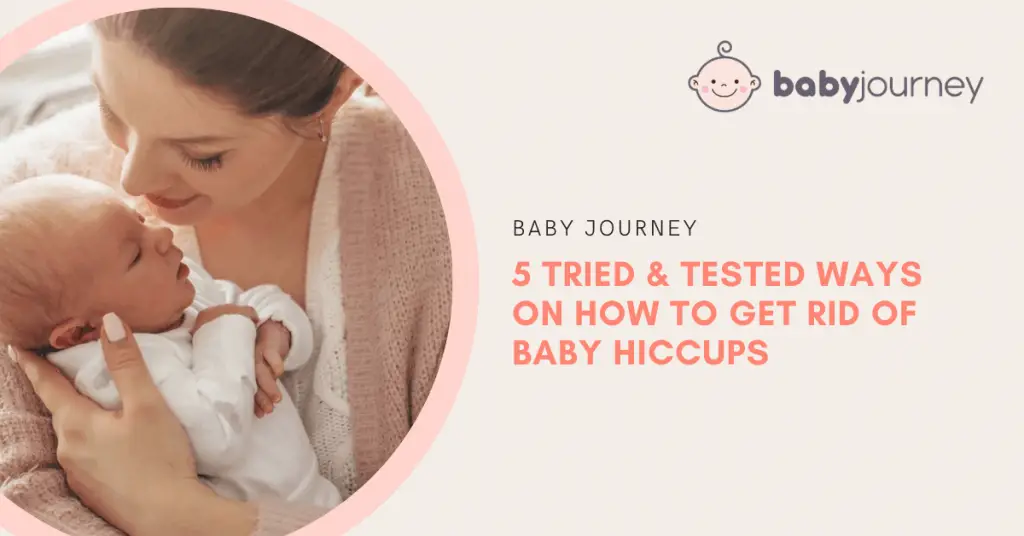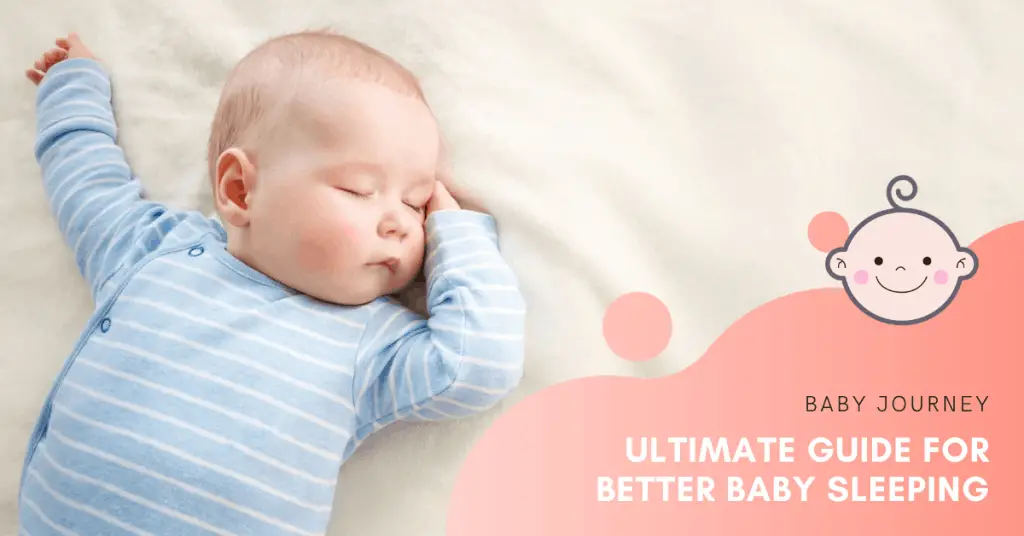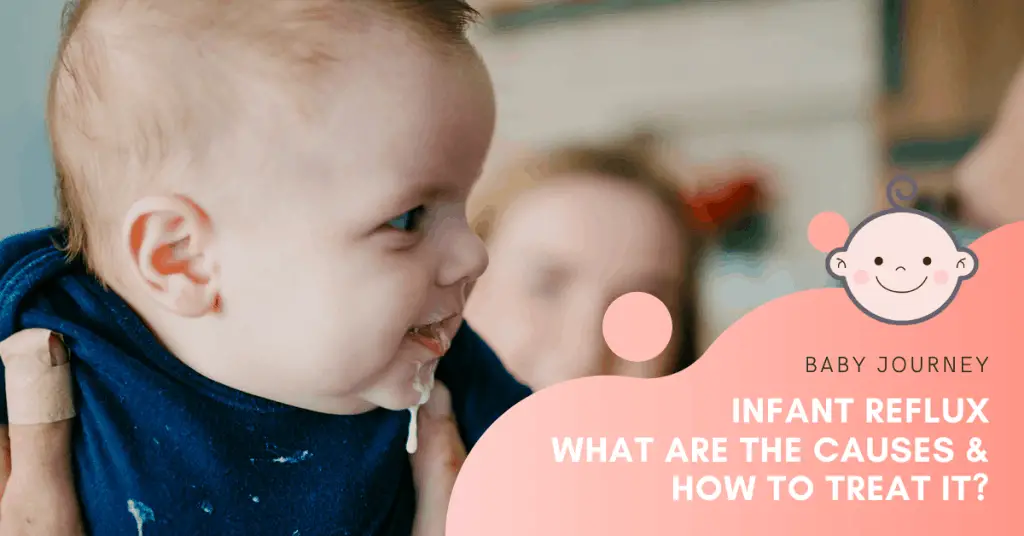Babies do the cutest things—they coo, yawn, and even their hiccups are adorable! While their hiccups may sound cute and sweet, you will be bothered by it and will make you wonder—is it normal?
It starts with a seemingly innocent question, but it will then be followed by a series of questions that will bother you even more. Why is my baby producing hiccups? What to do when a newborn has hiccups? How to get rid of baby hiccups?
I have been in the same position as you, and it is truly bothersome. That’s why I am here to help. In this article, I will share with you everything you need to know about baby hiccups and what you can do about it. Let’s get started!
Is It Normal for Babies to Have Hiccups?
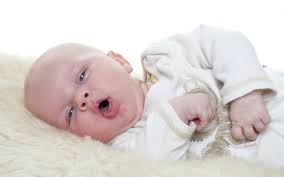
Yes, infant hiccups are pretty typical. The truth is, babies already get hiccups while they are still inside your womb, beginning from the 6th month of your pregnancy. During this time, the lungs of your child are starting to develop. If you had felt little spams in your abdomen when you were still pregnant, that’s most likely it.
Hiccups are caused by the spasm of your baby’s developing diaphragm. This is the large muscle that moves up and down when we breathe.
According to a study published by University College of London (UCL), hiccups may be beneficial to the baby’s development. As per the statement of Dr. Lorenzo Fabrizi, the study’s senior author, hiccups may send out signals to the brain to help babies regulate their breathing. The activity that follows the hiccup may assist the baby’s brain in learning how to monitor the breathing muscles until breathing is voluntarily controlled by the upward and downward movement of the diaphragm.
Hiccups, in itself, is perfectly normal. This is unless it is accompanied by other symptoms that we will discuss in the next section.
Why Do Babies Get Hiccups?
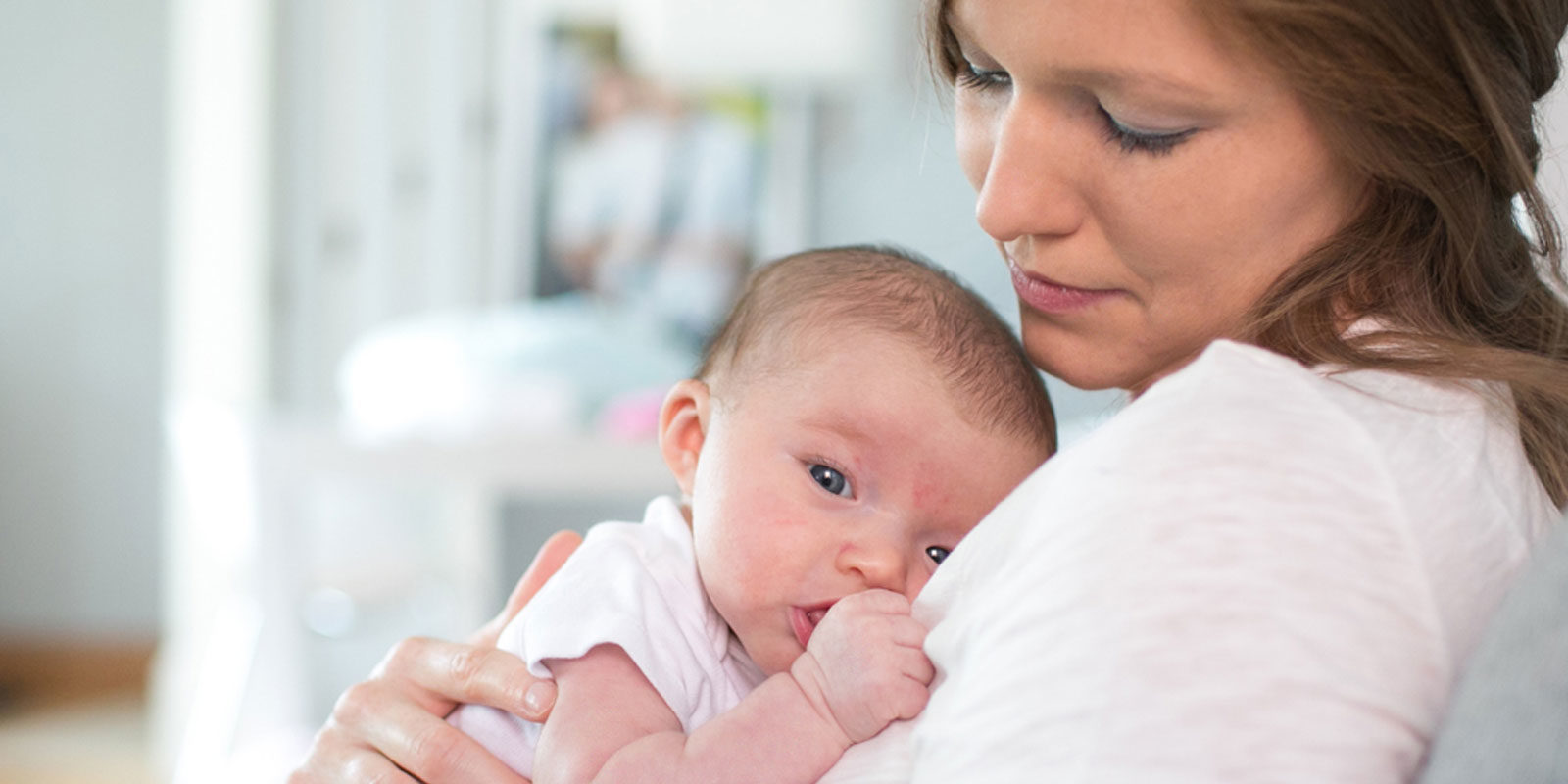
The exact reason why babies produce hiccups is still unknown. However, there are plenty of suspected reasons or possible triggers for this phenomenon, which subsequently help us understand how to get rid of baby hiccups. Here are some of them:
Stomach Distention
When your baby overeats, eats quickly, or swallows a lot of air, his or her stomach distends. When the stomach swells, it pushes against the diaphragm, causing it to spasm, which can result in hiccups.
If you find your baby producing hiccups after a meal, this may be the reason why! So how to get rid of baby hiccups from this? To prevent this from happening, you can change your baby’s eating habits by feeding him less or more slowly.
Sudden Changes in Stomach Temperature
Another common cause of baby hiccups is the sudden temperature change in your baby’s stomach. This comes as a result of your baby eating cold then hot dishes (and vice versa).
For example, you gave your baby a bottle of cold milk. After a few hours, you gave him hot mashed potatoes. This can lead to a change in the temperature inside your baby’s stomach, which will cause the diaphragm to spasm, which will eventually lead to hiccups.
Gastroesophageal Reflux
Once in awhile, hiccups act as a symptom of a medical condition. There are times when the hiccup is brought about by Gastroesophageal Reflux (GER), which occurs when the acidic juices along with the partially digested food in your baby’s stomach flow back up into the esophagus.
On its way to the esophagus, these food particles pass through the diaphragm, irritating it and causing it to spasm. GER may cause pain and discomfort to your little one, so it is a must that you address the issue right away.
But before you get all worked up, please take note that hiccups are not the only symptom of GER. There are other symptoms that you should watch out for. Here are some of them:
- Baby cries more frequently than the average.
- Baby is spitting more than usual.
- Baby arches his back excessively after or during his feeding time.
If your baby exhibits one or more of these symptoms, it is recommended that you contact your healthcare provider right away. The good news is, this condition can be easily treated, primarily if you address how to get rid of baby hiccups from such infant reflux condition immediately.
While you are waiting for your doctor’s advice, you can provide relief to your baby by following the tips provided in this video:
Five Ways on How to Get Rid of Baby Hiccups
More often than not, baby hiccups are not a cause for concern. More often than not, hiccups will stop on their own. If you think that the hiccups are not bothering your baby, the best thing that you can do is just to let the hiccups run its course.
But if you think it is already troublesome for you or your baby, then you will be happy to know that there are plenty of ways on how to stop or how to get rid of baby hiccups. To help you out, I have enumerated five of the best and most effective newborn hiccup remedies that I have tried below:
Method #1: Burp your baby.
Burping is one of the most effective ways to stop hiccups in babies. This is because the excess gas in your baby’s stomach is dispelled when you burp him.
It is recommended that you try different burping positions so you can determine which would be most comfortable for you and your baby. Here are three possible positions that you can try:
Sit upright and place your baby against your chest.
Place your baby in an upright position, allowing his chin to rest on your shoulders. Use one hand to support the back of your baby and the other to pat his back gently.
Hold your baby sitting up across your knee or in your lap.
Use one hand to support your baby’s head and chest with the palm cradling your baby’s chin, resting the heel of the hand in his chest. Use your other hand to pat your baby’s back to facilitate burping gently.
Lay your baby on his belly in your lap.
Use one hand to support your baby’s head and the other to gently pat his back.
To know more about how to burp a baby properly, please watch this video:
Pro Tips:
You should burp your baby in between feeds. For bottle-fed babies, burp them after every consuming every 2 to 3 ounces of milk. On the other hand, breastfed babies must be burped after they switch breasts. Burp your baby again once feeding time is over.
To prevent potential mess, place a bib or towel on your shoulder where your baby will rest his chin. In this way, the towel will be able to catch the spits and wet burp of your baby.
If, after a few minutes and your baby hasn’t burped yet, try changing your baby’s position for a few minutes more.
As your baby gets older, there’s a high chance that he will no longer burp in between and after feedings. Don’t worry if that happens, as this may indicate that your baby has already learned how to eat and feed without getting excess air.
Method #2: Use a pacifier.

Sometimes, burps do not come as a result of feeding. There are instances when burps start spontaneously. For cases like these, using a pacifier is one of the best ways on how to get rid of baby hiccups.
As your baby sucks on the pacifier, his diaphragm relaxes, and spasms are prevented. But of course, you have to make sure that you will buy the right pacifier for your baby, or else, it will do more harm than good.
Pro Tips:
You need to make sure that the pacifier is of the right size. If the pacifier is too big or small, it can be a safety hazard for him. Because of this, it is recommended that you buy a pacifier size that is recommended for your child’s age.
Consider the pacifier’s material. For this, you have two options—silicone and latex. Between the two, it is latex that us softer and more flexible. However, it may not be an excellent choice for people who have a latex allergy.
Keep in mind the pacifier’s shape. Pacifiers come in two shapes—an orthodontic shape or the standard round nipple. Both options are safe for babies. What you need to do is find the shape that is preferred by your baby. You can do this by testing out different pacifiers.
Method #3: Give him gripe water.
Gripe water is a type of water that contains certain herbs such as ginger, fennel, cinnamon, and chamomile. The herbs found in the water may vary. This type of product is often used to address colic or other tummy problems in babies.
While there are no studies that can prove the water’s effectiveness when dealing with how to get rid of baby hiccups, it’s regarded as a reasonably low-risk product (considering that it does not contain any ingredients that may cause allergic reactions to your baby.)
Pro Tips:
- Check the ingredient list before buying store-bought gripe water.
- Before you introduce a new food or drink items to your baby, make sure to consult his pediatrician first.
Method #4: Change your feeding position and schedule.
As mentioned, hiccups are a by-product of your baby’s feeding schedule and position. To work on how to get rid of baby hiccups, you need to carry out necessary changes to these feeding factors.
Here are some possible changes that you can implement:
- Go for smaller feeds to prevent your baby’s stomach from becoming too full.
Pro Tips: You can do this by feeding your baby twice as often but half as much.
- Keep the feeding bottle at a 45-degree angle during the feeding session. If it is higher than that, the stomach of your child will fill quickly. If it is too low, your baby will try to compensate by sucking harder. As a result, he will swallow more air.
- If your baby is breastfed and you hear gulping sounds while he is feeding, check to see if your baby’s mouth is tightly sealed around your areola. If not, adjust it accordingly.
Method #5: Gently massage your baby’s back.
Applying gentle strokes in your baby’s back can ease the diaphragm and allow it to relax, preventing bouts of hiccups along the way.
You can do this in two ways. First, allow your baby to lie on his or her chest or belly in your lap or the bed. Apply gentle downward strokes.
Another option is to place your baby in an upright position and apply gentle upward strokes. Do this for 20 to 30 minutes.
Pro Tip: Try to place your child on the belly and allow him or her to fidget, crawl, or move around to dispel excess air in the stomach initially. After that, you can proceed with massaging your baby.
Getting Rid of Your Baby’s Hiccups
Baby hiccups may be normal, but it can be a nuisance not just for you but for your baby as well.
I have personally tried all of the solutions I have provided above. It worked well for my daughter, and I am hoping it will be effective for your little one too.
My favorite method of all is using a pacifier. I have used this technique, not just on how to get rid of baby hiccups but also to soothe and calm my kid when she becomes a fussy baby.
Do you have other tips on how to stop baby hiccups? If so, please share them with us in the comments section!
